Now it is clear from the Analytic that the maxims of virtue and those of private happiness are quite heterogeneous as to their supreme practical principle, and, although they belong to one summum bonum which together they make possible, yet they are so far from coinciding that they restrict and check one another very much in the same subject.Thus the question: "How is the summum bonum practically possible?" still remains an unsolved problem, notwithstanding all the attempts at coalition that have hitherto been made.The Analytic has, however, shown what it is that makes the problem difficult to solve; namely, that happiness and morality are two specifically distinct elements of the summum bonum and, therefore, their combination cannot be analytically cognised (as if the man that seeks his own happiness should find by mere analysis of his conception that in so acting he is virtuous, or as if the man that follows virtue should in the consciousness of such conduct find that he is already happy ipso facto), but must be a synthesis of concepts.Now since this combination is recognised as a priori, and therefore as practically necessary, and consequently not as derived from experience, so that the possibility of the summum bonum does not rest on any empirical principle, it follows that the deduction [legitimation] of this concept must be transcendental.It is a priori (morally) necessary to produce the summum bonum by freedom of will: therefore the condition of its possibility must rest solely on a priori principles of cognition.
I.The Antinomy of Practical Reason.
In the summum bonum which is practical for us, i.e., to be realized by our will, virtue and happiness are thought as necessarily combined, so that the one cannot be assumed by pure practical reason without the other also being attached to it.Now this combination (like every other) is either analytical or synthetical.It bas been shown that it cannot be analytical; it must then be synthetical and, more particularly, must be conceived as the connection of cause and effect, since it concerns a practical good, i.e., one that is possible by means of action; consequently either the desire of happiness must be the motive to maxims of virtue, or the maxim of virtue must be the efficient cause of happiness.The first is absolutely impossible, because (as was proved in the Analytic)maxims which place the determining principle of the will in the desire of personal happiness are not moral at all, and no virtue can be founded on them.But the second is also impossible, because the practical connection of causes and effects in the world, as the result of the determination of the will, does not depend upon the moral dispositions of the will, but on the knowledge of the laws of nature and the physical power to use them for one's purposes; consequently we cannot expect in the world by the most punctilious observance of the moral laws any necessary connection of happiness with virtue adequate to the summum bonum.Now, as the promotion of this summum bonum, the conception of which contains this connection, is a priori a necessary object of our will and inseparably attached to the moral law, the impossibility of the former must prove the falsity of the latter.If then the supreme good is not possible by practical rules, then the moral law also which commands us to promote it is directed to vain imaginary ends and must consequently be false.
II.Critical Solution of the Antinomy of Practical Reason.
The antinomy of pure speculative reason exhibits a similar conflict between freedom and physical necessity in the causality of events in the world.It was solved by showing that there is no real contradiction when the events and even the world in which they occur are regarded (as they ought to be) merely as appearances; since one and the same acting being, as an appearance (even to his own inner sense), has a causality in the world of sense that always conforms to the mechanism of nature, but with respect to the same events, so far as the acting person regards himself at the same time as a noumenon (as pure intelligence in an existence not dependent on the condition of time), he can contain a principle by which that causality acting according to laws of nature is determined, but which is itself free from all laws of nature.
It is just the same with the foregoing antinomy of pure practical reason.The first of the two propositions, "That the endeavour after happiness produces a virtuous mind," is absolutely false; but the second, "That a virtuous mind necessarily produces happiness," is not absolutely false, but only in so far as virtue is considered as a form of causality in the sensible world, and consequently only if I suppose existence in it to be the only sort of existence of a rational being; it is then only conditionally false.But as I am not only justified in thinking that I exist also as a noumenon in a world of the understanding, but even have in the moral law a purely intellectual determining principle of my causality (in the sensible world), it is not impossible that morality of mind should have a connection as cause with happiness (as an effect in the sensible world) if not immediate yet mediate (viz., through an intelligent author of nature), and moreover necessary; while in a system of nature which is merely an object of the senses, this combination could never occur except contingently and, therefore, could not suffice for the summum bonum.















